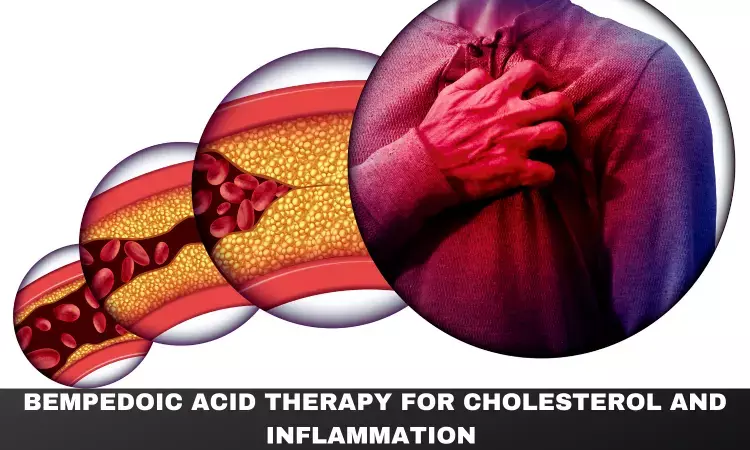- Home
- Medical news & Guidelines
- Anesthesiology
- Cardiology and CTVS
- Critical Care
- Dentistry
- Dermatology
- Diabetes and Endocrinology
- ENT
- Gastroenterology
- Medicine
- Nephrology
- Neurology
- Obstretics-Gynaecology
- Oncology
- Ophthalmology
- Orthopaedics
- Pediatrics-Neonatology
- Psychiatry
- Pulmonology
- Radiology
- Surgery
- Urology
- Laboratory Medicine
- Diet
- Nursing
- Paramedical
- Physiotherapy
- Health news
- Fact Check
- Bone Health Fact Check
- Brain Health Fact Check
- Cancer Related Fact Check
- Child Care Fact Check
- Dental and oral health fact check
- Diabetes and metabolic health fact check
- Diet and Nutrition Fact Check
- Eye and ENT Care Fact Check
- Fitness fact check
- Gut health fact check
- Heart health fact check
- Kidney health fact check
- Medical education fact check
- Men's health fact check
- Respiratory fact check
- Skin and hair care fact check
- Vaccine and Immunization fact check
- Women's health fact check
- AYUSH
- State News
- Andaman and Nicobar Islands
- Andhra Pradesh
- Arunachal Pradesh
- Assam
- Bihar
- Chandigarh
- Chattisgarh
- Dadra and Nagar Haveli
- Daman and Diu
- Delhi
- Goa
- Gujarat
- Haryana
- Himachal Pradesh
- Jammu & Kashmir
- Jharkhand
- Karnataka
- Kerala
- Ladakh
- Lakshadweep
- Madhya Pradesh
- Maharashtra
- Manipur
- Meghalaya
- Mizoram
- Nagaland
- Odisha
- Puducherry
- Punjab
- Rajasthan
- Sikkim
- Tamil Nadu
- Telangana
- Tripura
- Uttar Pradesh
- Uttrakhand
- West Bengal
- Medical Education
- Industry
Bempedoic acid reduces cholesterol and inflammation, similar to statin: Study

USA: A recent study published in the Journal of Clinical Lipidology has shown that bempedoic acid (BA), an ATP citrate lyase inhibitor, may potentially reduce inflammation and lower cholesterol in patients with known atherosclerotic disease and/or heterozygous familial hypercholesterolemia.
Bempedoic acid (BA) has been shown to inhibit ATP citrate lyase and effectively reduce both LDL-C and high-sensitivity C-reactive protein (hs-CRP). However, the underlying mechanisms that could lead to anti-inflammatory effects with BA are unknown, as is its potential impact on lipoprotein.
The study was a secondary biomarker analysis, randomized placebo-controlled multi-centre trial called the CLEAR Harmony trial. The trial included 817 patients with atherosclerotic disease or heterozygous familial hypercholesterolemia who were already taking statin therapy. Participants were randomly allocated in a 2:1 ratio to receive oral BA (180mg o.d.) or a placebo over a 12-week period.
The study revealed the following key clinical findings:
- The results showed that BA was associated with significant reductions in low-density lipoprotein cholesterol (-21.1%), non-high-density lipoprotein cholesterol (-14.3%), total cholesterol (-12.8%), apolipoprotein B (-13.15%), high-density lipoprotein-cholesterol (-8.3%), and high-sensitivity C-reactive protein (-26.5%) over 12 weeks.
- There was a slight increase in lipoprotein(a) (2.4%) and fibrinogen (2.1%) and minimal effect on Interleukin-6 (-3.7%).
- There was no significant correlation between BA-associated changes in lipid markers and hs-CRP, except for a weak correlation with HDL-C.
- The study also found that the lipid-lowering and inflammation inhibition pattern with BA was almost identical to what is observed with statin therapy.
The study results suggest that BA may be a useful treatment option to address both residual cholesterol and inflammatory risks in patients already taking statins. The exact mechanisms underlying the potential anti-inflammatory effects of BA are still uncertain, and further research is needed to fully understand the drug's effects on lipoprotein(a).
Dr. Paul Ridker, the study's lead author, noted that "these findings suggest that BA has the potential to be a very important addition to the armamentarium of lipid-lowering therapies. However, he also cautioned that more research is needed to determine the long-term effects of BA and its potential side effects.”
Reference:
Ridker P., Lei L., Ray K., Ballantyne C., Bradwin G., Rifai N., Effects of bempedoic acid on CRP, IL-6, fibrinogen, and lipoprotein(a) in patients with residual inflammatory risk: A secondary analysis of the CLEAR harmony trial Journal of Clinical Lipidology, 2023, 02.13 DOI: https://doi.org/10.1016/j.jacl.2023.02.002
Dr. Mahalakshmi Sivashankaran joined Medical Dialogues as an Intern in 2023. She is a BDS graduate from Manipal College of Dental Sciences, Mangalore Batch 2022, and worked as a Junior Resident at VMMC & Safdarjung Hospital at the Department of Dental Surgery till January 2023. She has completed a Diploma in Executive Healthcare management from the Loyola Institute of Business Administration, developing skills in Healthcare Management and Administration. She covers several medical specialties including Dental, ENT, Diagnostics, Pharmacology, Neurology, and Cardiology.
Dr Kamal Kant Kohli-MBBS, DTCD- a chest specialist with more than 30 years of practice and a flair for writing clinical articles, Dr Kamal Kant Kohli joined Medical Dialogues as a Chief Editor of Medical News. Besides writing articles, as an editor, he proofreads and verifies all the medical content published on Medical Dialogues including those coming from journals, studies,medical conferences,guidelines etc. Email: drkohli@medicaldialogues.in. Contact no. 011-43720751


